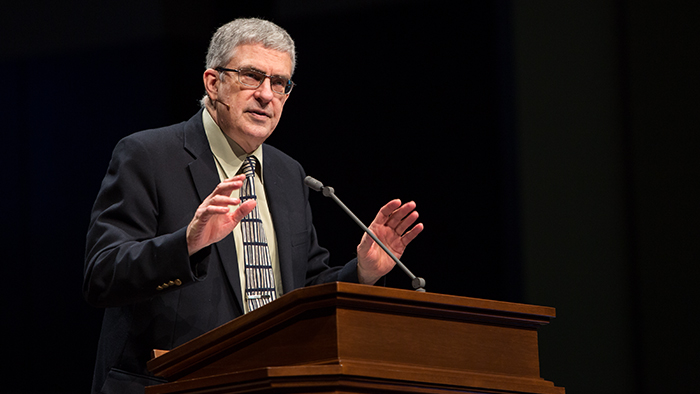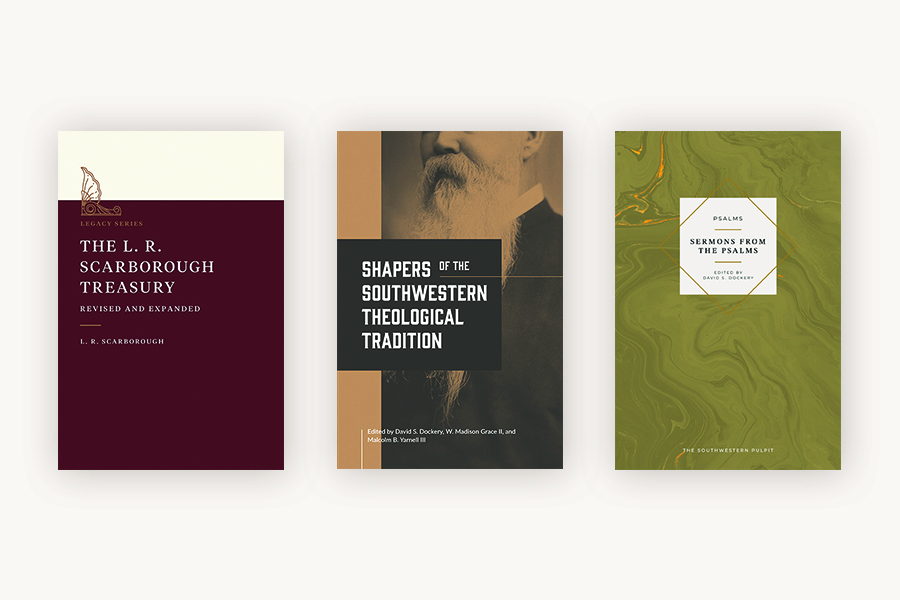Lecturer claims Jewish roots for divinity of Messiah in early Christology

Skeptics may argue that early Christians “invented” the idea of the divinity of Jesus under Greco-Roman influence, but according to Craig A. Evans, speaker for the first annual E. Earle Ellis lecture series at Southwestern Seminary, the exaltation of Christ as God stemmed not from pagan religious customs but rather from ancient Jewish Scripture. An important source for this argument are the Qumran scrolls, which provide concrete historical evidence against the ungrounded imaginations of so-called critical scholars.
Southwestern’s School of Theology inaugurated the Ellis Lectureship on March 3-4 in honor of the late E. Earle Ellis, emeritus professor of theology at Southwestern. During the two-day lecture series, Evans, dean of the School of Christian Thought and professor of Christian origins at Houston Baptist University in Houston, Texas, spoke extensively on Messianic references in the Qumran scrolls with a special focus on the texts that reveal Jewish expectations for a divine Messiah in the first century B.C.
“These scrolls constitute a library of religious texts that provide us with a cross-section of pious Jewry that took seriously Israel’s glorious past and Israel’s prophetic future,” Evans explained. “Amongst the strands of Messianic hopes and speculations, [there] were ideas that envisioned the Messiah as a divine being—a god of sorts—or, perhaps, God Himself.”
The first important Qumran text attesting to this view is 1QSA, which contains the phrase “when God has begotten the Messiah.” While critical scholars try to explain away the word “begotten” because they think it sounds “too Christian,” Evans declared that the expression is obviously a quote from Psalm 2:7—“You are My Son, today I have begotten You.”
Another critical text that Evans explored, 4Q246, consists of two extant columns written in Aramaic. Though small, Evans noted that it calls the Messiah the “Son of God and the Son of the Most High” who will establish an eternal kingdom and reign forever. The text thus clearly proves that the idea of a Messianic “Son of God” was not invented under Greco-Roman influence, but that it already existed in the Jewish world even before Jesus was born.
Finally, through examinations of 4Q521 and 11Q13 (otherwise called 11QMelchizedek), Evans confirmed that there were strains of first-century B.C. Messianic thought that connected the eschatological Jubilee to a divine Messiah. The Messiah envisioned in 4Q521 performs the deeds that Scripture ascribes only to Yahweh. In 11Q13, moreover, the author directly replaces the name Yahweh with the name “Melchizedek,” a name that the author uses to describe the eschatological Messiah.
“The author of 11Q13 evidently believed that Melchizedek, the mysterious priest-king, was none other than God Himself,” Evans remarked. “And then, in the last days, He would restore Israel, forgive Israel’s sin, and defeat Satan.”
All these expectations, Evans concluded, were in fact fulfilled in the actual works of Christ: “Jesus claimed to possess authority to forgive sin. Jesus not only healed and cast out evil spirits … He implied that He had bound Satan, the strong man, and was now looting his domain.”



